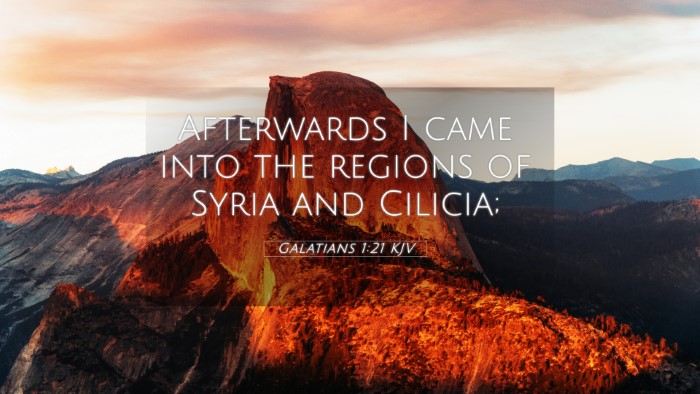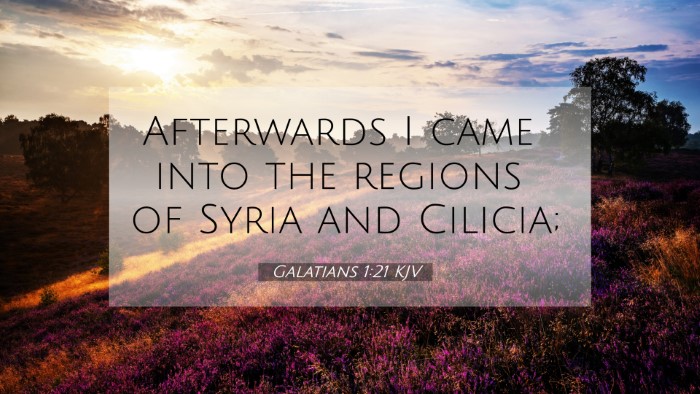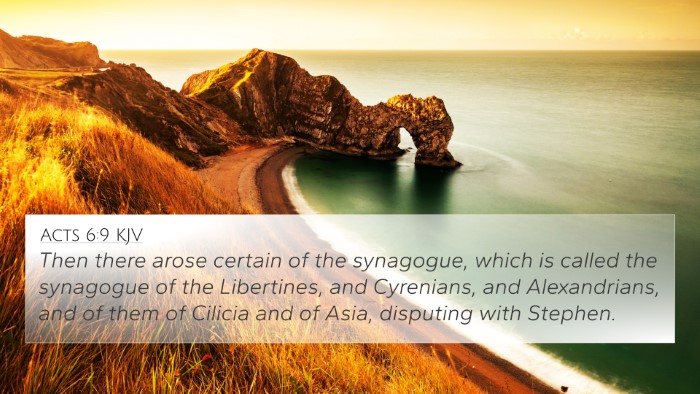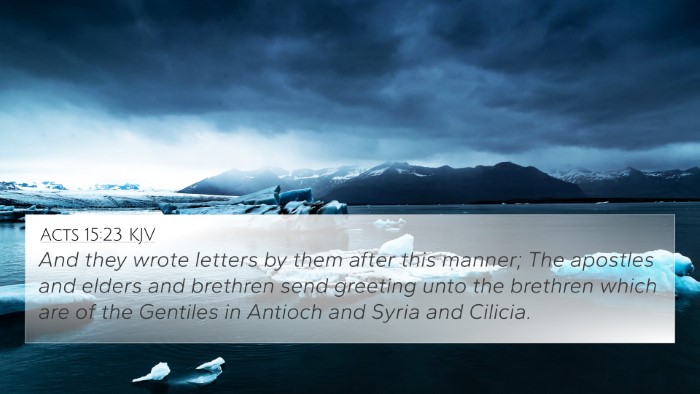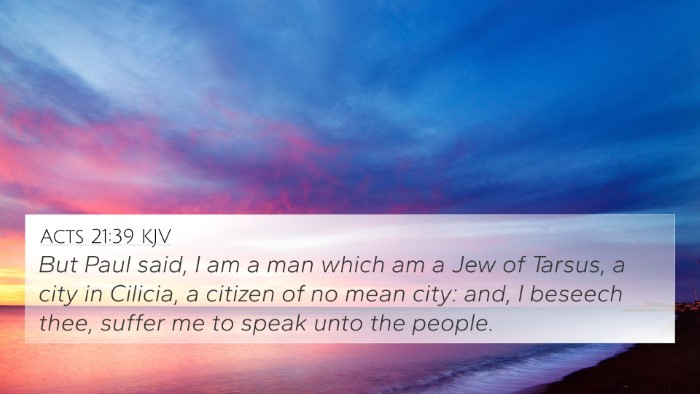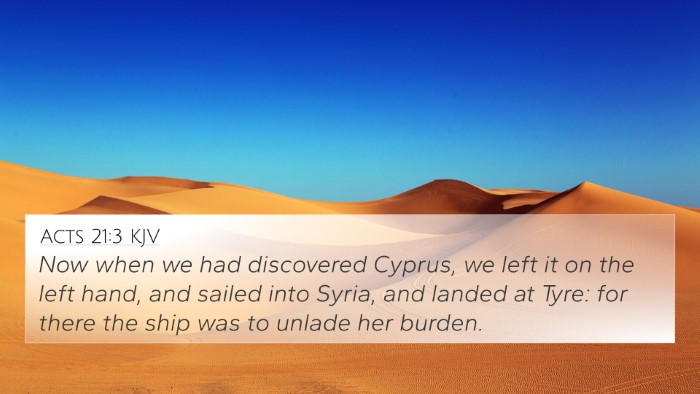Understanding Galatians 1:21
Verse: "Afterward I went into the regions of Syria and Cilicia." (Galatians 1:21)
Meaning and Insights
In Galatians 1:21, the Apostle Paul is recounting his journey after his conversion. This verse signifies a period of transition and mission in his life where Paul seeks to spread the Gospel in new territories. Below we outline the meanings derived from public domain commentaries.
Matthew Henry's Commentary
Matthew Henry notes that this part of Paul's journey reflects his obedience to the divine calling he received. He emphasizes the importance of Paul's mission being guided by the Holy Spirit rather than by human counsel. Henry also highlights that the regions of Syria and Cilicia were significant, as they included cities where Paul would later establish churches.
Albert Barnes' Notes
Albert Barnes points out that after Paul’s dramatic conversion, he did not immediately go to Jerusalem to consult the original apostles but instead moved toward the regions of Syria and Cilicia. This indicates his independence in the ministry and desire to preach the Gospel directly. Barnes elaborates on the strategic importance of these regions as places ripe for evangelism.
Adam Clarke's Commentary
Adam Clarke remarks on the geographical significance of the regions mentioned. He notes that Cilicia is identified as Paul's home region (Tarsus), indicating Paul's return to his roots. Clarke also emphasizes that Paul's journey signifies a crucial phase of preparation for his future missions, illustrating God’s leading in his life.
Thematic Connections and Cross-References
This verse opens up a dialogue with other scriptures, enriching our understanding through comparative study. Here are some related Bible verses:
- Acts 9:30 - "But when the brethren knew, they brought him down to Caesarea, and sent him forth to Tarsus.” This verse connects with Galatians 1:21 by indicating Paul's early ministry in his home region.
- 2 Corinthians 11:32 - "In Damascus the governor under Aretas the king kept the city of the Damascenes with a garrison, desirous to apprehend me." It illustrates the opposition Paul faced in these regions.
- Acts 13:2 - "As they ministered to the Lord, and fasted, the Holy Ghost said, Separate me Barnabas and Saul for the work whereunto I have called them." This shows Paul's divine appointment for missionary work.
- Philippians 3:5 - "Circumcised the eighth day, of the stock of Israel, of the tribe of Benjamin, an Hebrew of the Hebrews; as touching the law, a Pharisee." Paul’s Jewish heritage is important for understanding his ministry in these regions.
- Acts 14:1 - "And it came to pass in Iconium, that they went both together into the synagogue of the Jews, and so spake, that a great multitude both of the Jews and also of the Greeks believed." Highlights Paul’s missionary work introduced in Galatians 1:21.
- Romans 15:19 - "Through mighty signs and wonders, by the power of the Spirit of God; so that from Jerusalem, and round about unto Illyricum, I have fully preached the gospel of Christ." Evidences the success of his later efforts inspired starting in regions like Syria and Cilicia.
- Galatians 2:1 - "Then fourteen years after I went up again to Jerusalem with Barnabas, and took Titus with me also." Reflects the timeline of Paul's ministry and connections to Jerusalem narratives.
Practical Application
The journey of Paul serves as a blueprint for Christian ministry and evangelism. It stresses the importance of following God's call, even when it leads us into unfamiliar territories or challenges. Moreover, these connections found within the scripture highlight the importance of understanding the historical and theological context of our faith.
Conclusion
Galatians 1:21 is a significant verse illustrating Paul’s early ministerial efforts and sets the stage for his future missionary journeys. Through tools for cross-referencing such as a Bible concordance or a Bible cross-reference guide, readers can further explore the connections between scripture to develop a more comprehensive understanding of biblical themes.

